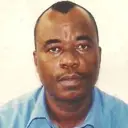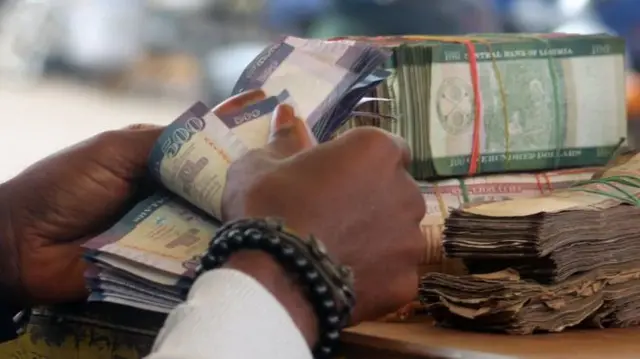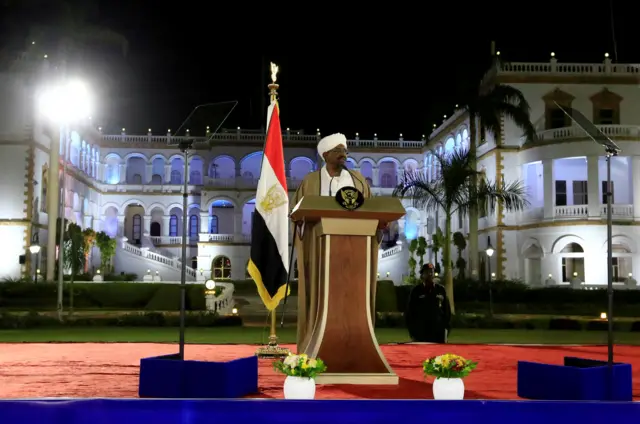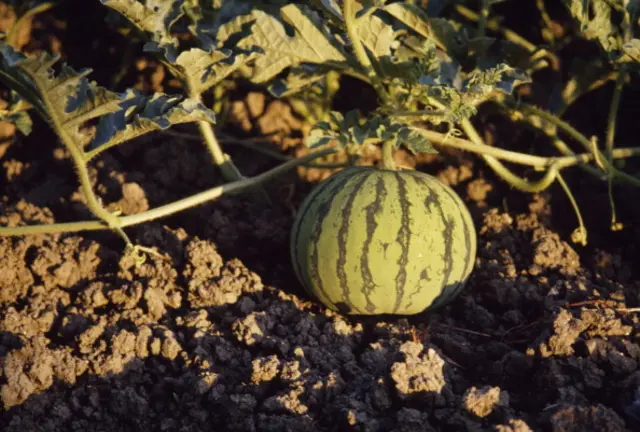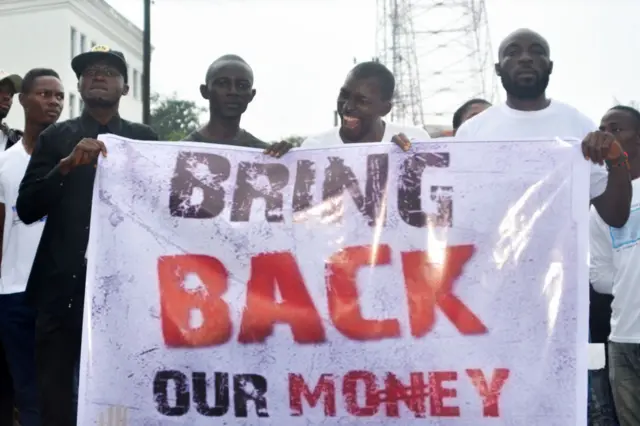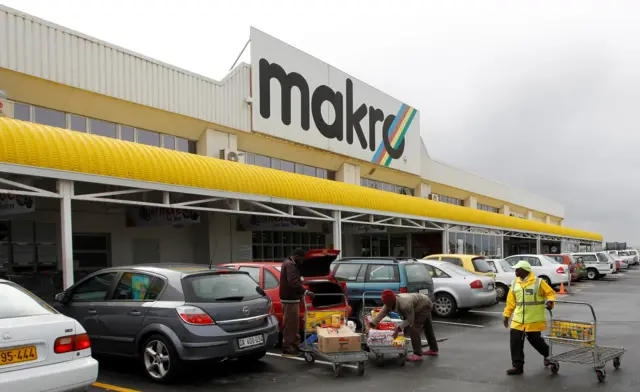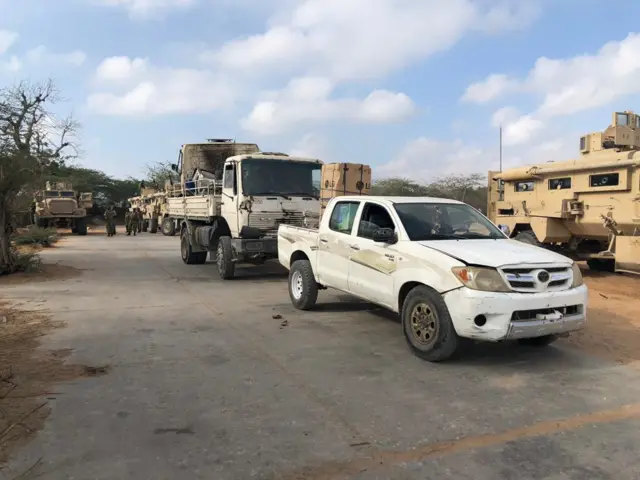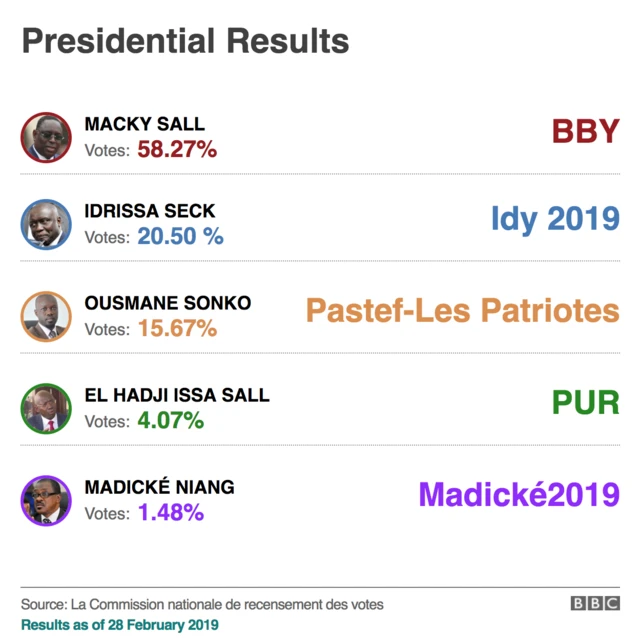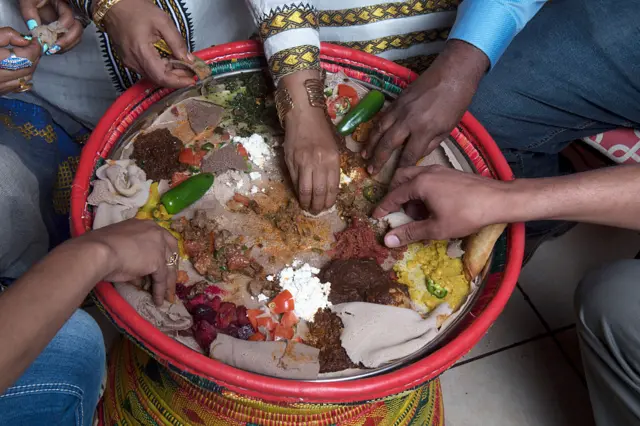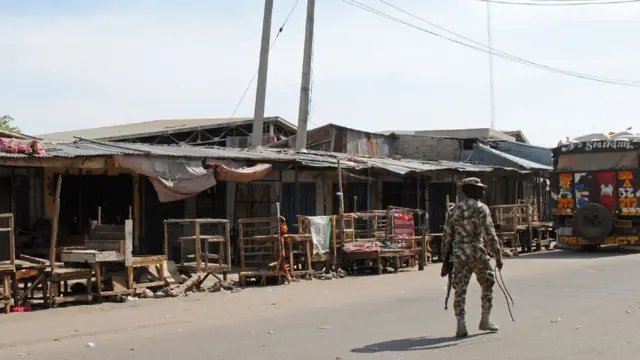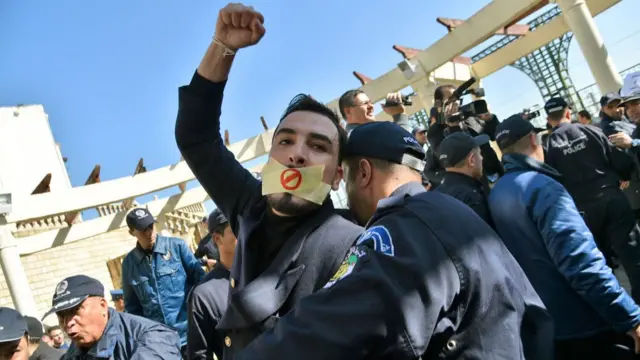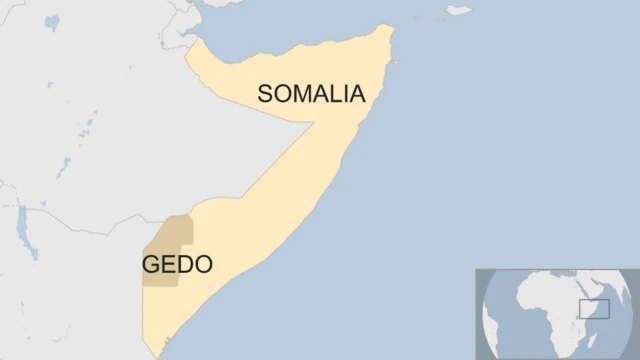'More than 20 dead' in Somalia attackpublished at 10:17 GMT 1 March 2019
 BBC World Service
BBC World Service
Police in Somalia say a car bomb and gun battle in the capital, Mogadishu, have killed more than 20 people.
Forty others were injured by the blast in front of a hotel in the centre of the city.
Exchanges of gunfire continued throughout the night between police and the suspected al-Shabab militants.
They launched their assault on a street lined with hotels, shops and restaurants.
The gunmen took refuge in a nearby building where they were surrounded by soldiers.
Latest reports suggest the gun battle is now over.
Mohamed Moalimuu, a former BBC colleague who is now head of the Somali journalists' association, has been tweeting that he was caught up in the initial attack:
Allow X content?
This article contains content provided by X. We ask for your permission before anything is loaded, as they may be using cookies and other technologies. You may want to read X’s cookie policy, external and privacy policy, external before accepting. To view this content choose ‘accept and continue’.
